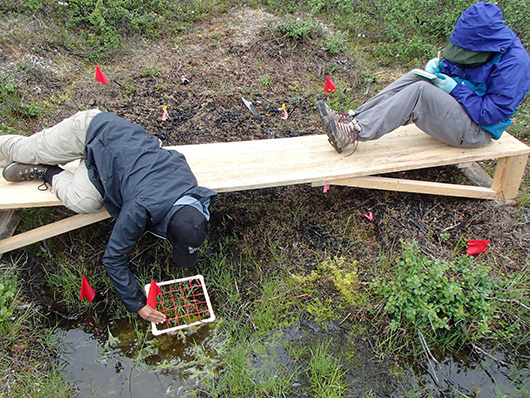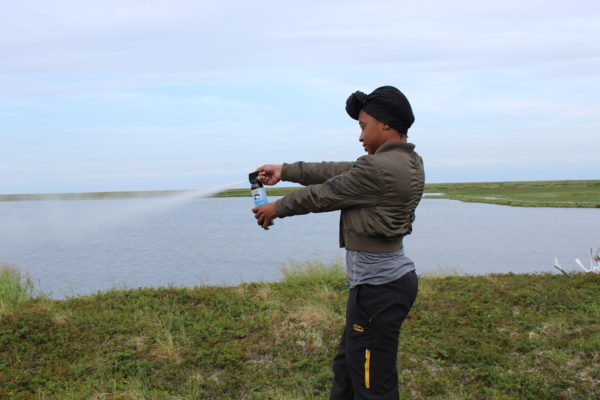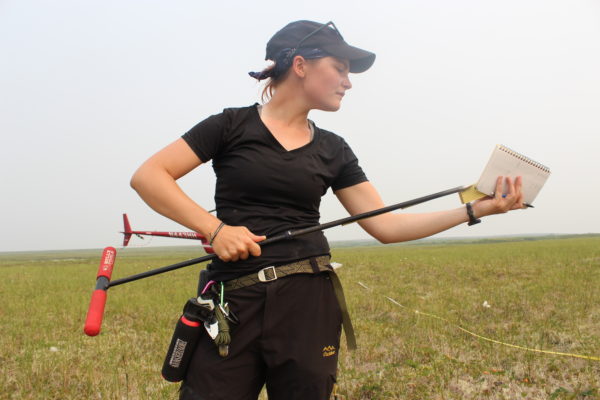Most scientists follow a path that leads them to becoming an expert in their field —just one aspect of scientific knowledge. Some people spend their time looking at plants while others may dedicate their days finding animal poop (you can ask Sal and Nigel about this). Everyone has different interests and these interests drive scientific discovery. However, sometimes we can become so focused on one topic that we neglect everything else. Even at this early point in my scientific career I found myself doing this in Siberia. In a nutshell, I like water and I like rocks and I like figuring out how they interact. Walking in the woods I don’t notice the vegetation or signs of animal life—my eyes are glued to the trail searching for signs of the rocks below in the hope getting an idea of what geological processes led to the creation of the surrounding environment.
I ran into a roadblock on my own project here in Siberia thinking through this focused lens. The processes I wanted to investigate required equipment that we don’t have. This forced me to think about my project in a way that would allow me to use the tools available. This led to a realization… I would have to use biology. I won’t lie; I have done a good job of minimalizing biology in my life. The thought of incorporating biology into my project seemed daunting, especially given the lack of textbooks or Internet to guide me. But then something awesome happened—I went into the forest with Erika and counted plants for hours, in the cold, yet somehow still buggy air. And contrary to all my previous notions about biology, I really enjoyed it. There was something intriguing about diving into a square-foot plot of land and discovering how much diversity there was in that small area. It changed the way I looked around my environment. After this experience I found myself stopping not just to look at rocks, but also to identify patches of willows and betula. I even picked up a book about the local Cherskiy vegetation to flip through- for fun.

Sampling the burn plot.
I have started to ask more and more questions about biological processes and I haven’t needed a book or the Internet at all. My other core team members have been more than willing to answer any questions I have. In return I try to work through their questions about water chemistry and geology. Best of all, the research project that I had been struggling to put together suddenly had a breakthrough because I was able to look at the problem from a different aspect. Science thrives off of people who are passionate about their discipline, but to understand the implications that one topic has on other systems we have to look at it from an interdisciplinary approach.




Comments(2)-
-
Sandy Coleman says
July 14, 2014 at 2:20 pmHi, Kenzie, it is great to read about your internship. I’ve emailed you seeking to write a story about your internship for the Wheaton Quarterly. Please take a look at your Wheaton emails. The main thing I’m hoping to do is to get some high resolution images of you at work there before you leave. Please get in contact. Thanks.–Sandy C.
Max Holmes says
July 14, 2014 at 5:23 pmDear Sandy –
The Polaris group is at a remote tundra site for the next week or so and won’t have internet contact during that time. But Chris Linder is busily photographing the entire group, so I’m sure there will be some great shots of Kenzie doing field work. I also talk with the group via satellite phone every couple of days (I’m in Washington DC now), so I’ll pass along your request.
Cheers
Max Holmes